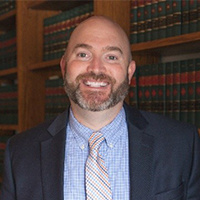Monticello Estate Lawyer, New York
Sponsored Law Firm
-
 x
x

Click For More Info:
-
The Michelson Law Office
203 North Lasalle Street Suite 2100 Chicago, IL 60601» view mapBankruptcy, Chapter 7, Chapter 13 Chicago Bankruptcy Lawyer
When your finances are at stake, choose the best. Don't sink deeper in debt. Contact The Michelson Law Office
800-824-6431
Scott A Russell
✓ VERIFIEDCriminal, Wills & Probate, Employee Rights, Banking & Finance
With experience serving the public as an Assistant District Attorney, prosecuting minor traffic infractions and serious felony offenses, as public def... (more)
S Richard Gross
Reinsurance, Personal Injury, Commercial Real Estate, Trusts
Status: In Good Standing Licensed: 67 Years

 Abraham Michelson Chicago, IL
Abraham Michelson Chicago, IL AboutAbraham Michelson
AboutAbraham Michelson Practice AreasServices
Practice AreasServices

